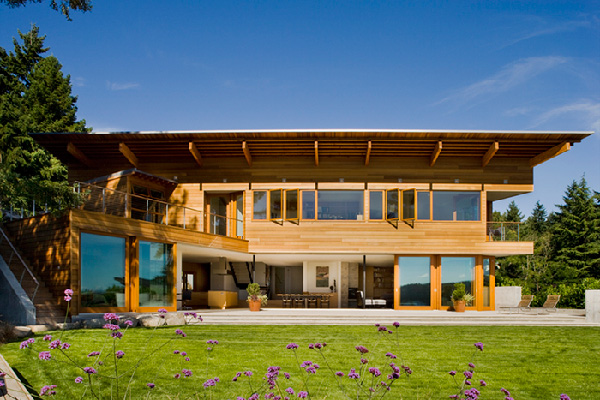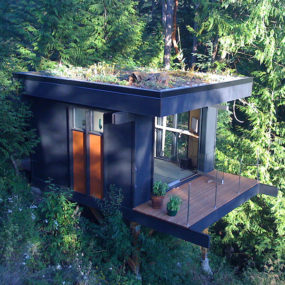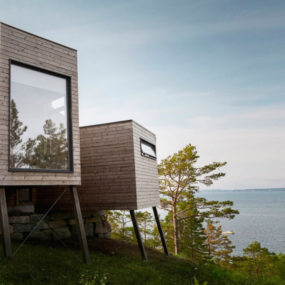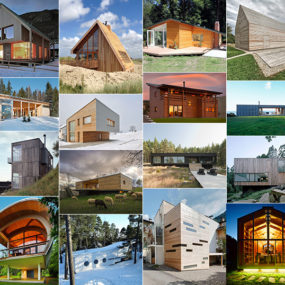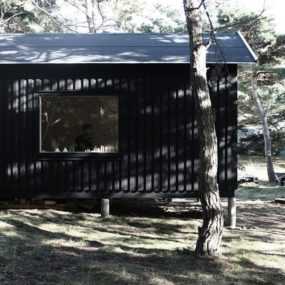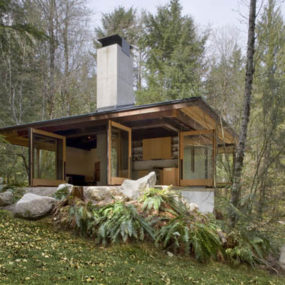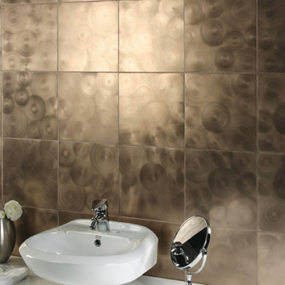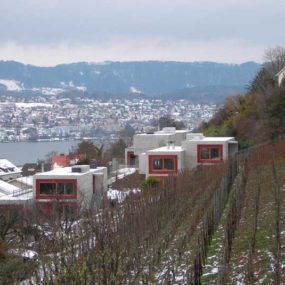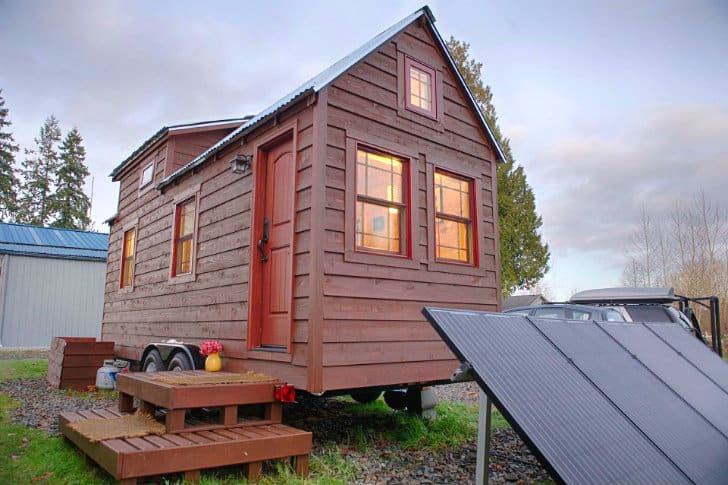
Built by a couple desiring to minimize their environmental impact, this tiny house is about as self-sufficient as can be, featuring solar panels and many composting and resource recycling systems. In addition to expending resources with maximum efficiency, the home edges out other eco-friendly buildings in a more passive and unique manner: instead of being built on a foundation, it’s mounted fully on a trailer. This prevents the habitat destruction that inevitably accompanies the building of even the smallest home on a woodland plot, allowing the homeowners to live wherever they wish without leaving more than tire tracks when they leave.
The diminutive Washington dwelling is much more than just an exercise in environmental friendliness, however, housing the couple year-round in comfort. Its design is a condensed version of traditional northwest cabin architecture both inside and out, with wood finishes on every available surface and comfortable furnishings. Working on such narrow platform is a challenge to any design, but this little dwelling pulls it off well.
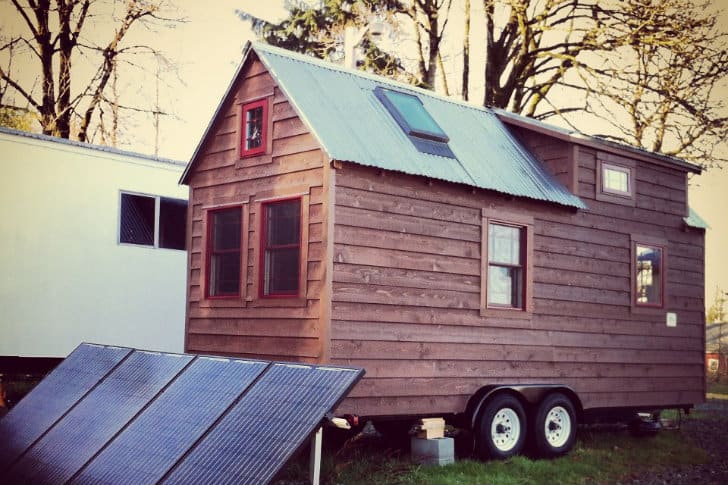
With the removal of the porch steps and a few ground-level utilities, the entire house is completely movable on a whim, literally built on the chassis of a standard platform trailer. It’s not quite aerodynamic enough for highway trips, but any destination reachable via the backroads is fair game.
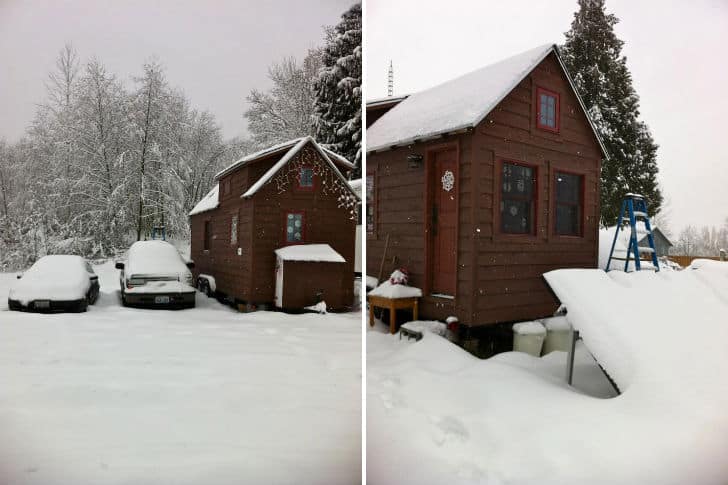
Side by side, the two cars of the homeowners are wider than the trailer itself.
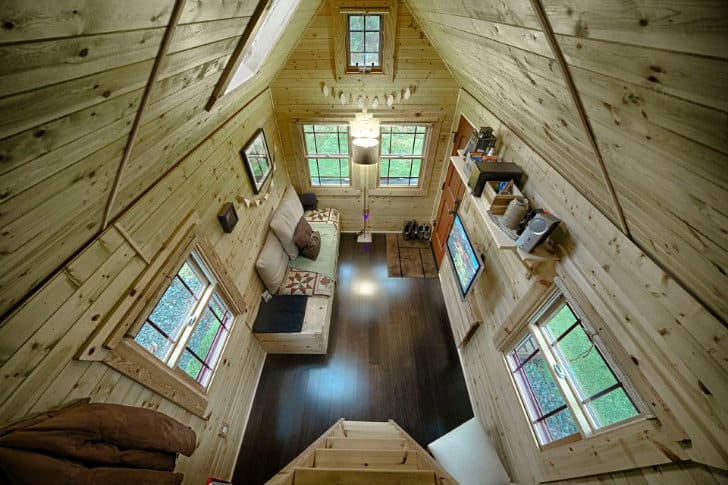
The interior of the house is segmented into a number of distinct spaces, each with its own individual purpose. Even within the constraints of an ultra-compact floorplan, the structure’s designers managed to avoid combining the purposes of different rooms.
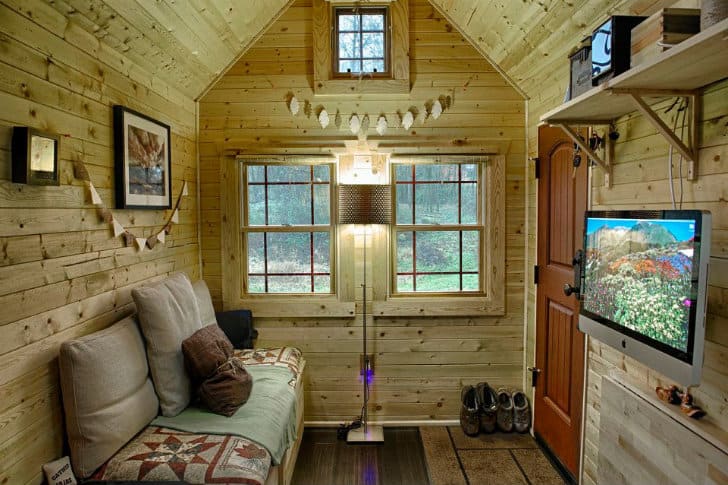
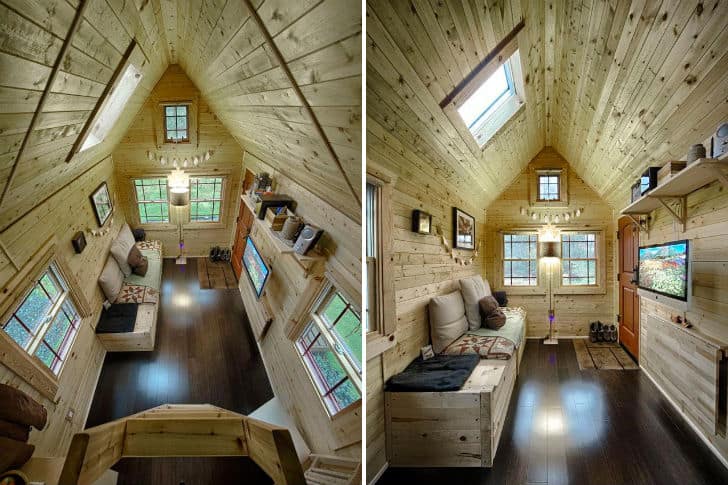
The living room is the tallest individual portion of the house, with a sloped ceiling opening up the thin area.
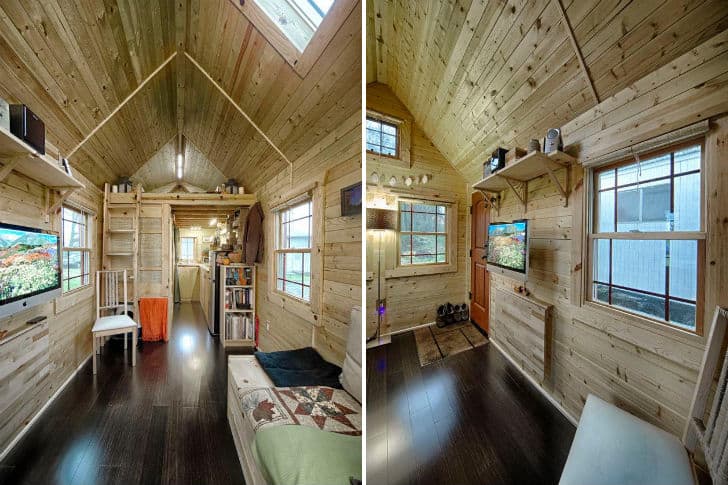
Large windows at a variety of angles help to provide natural light during any season, aiding the visual contrast between the dark-finished flooring and lighter walls.
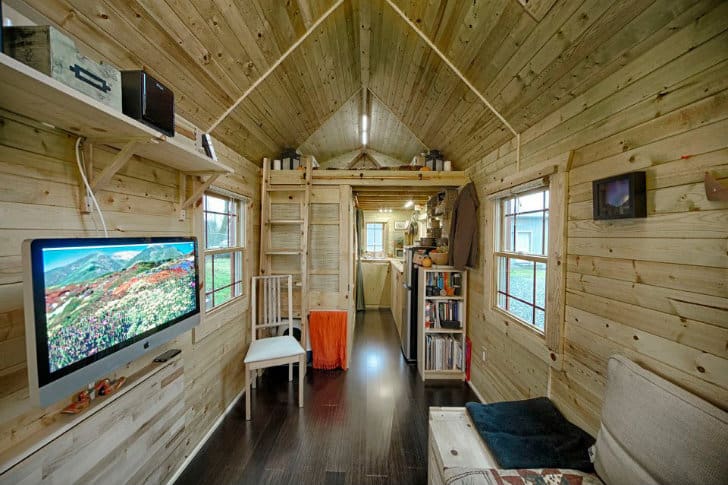
The house is too small for hallways, so every room is connected in a more direct manner. Each entrance has its own personality, still: the kitchen’s access is completely open, the bedroom requires a ladder to get to, and the bathroom has its own enclosed doorway.
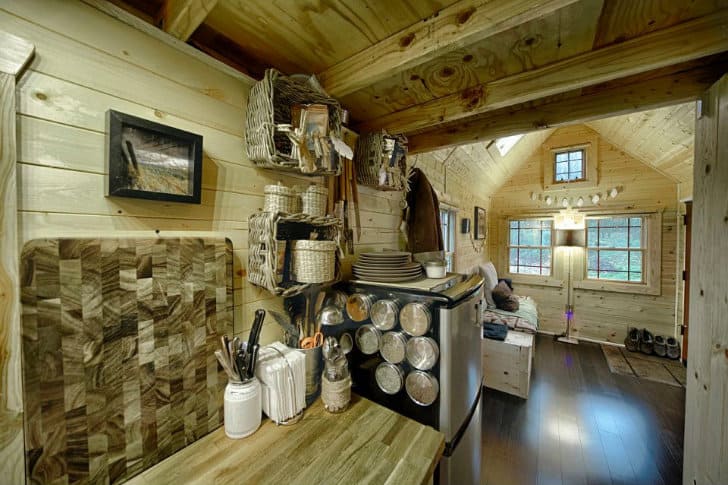
Jars, baskets, and other traditional functional pieces are a part of this mobile dwelling’s ethos, transporting visitors to a hand-made era.
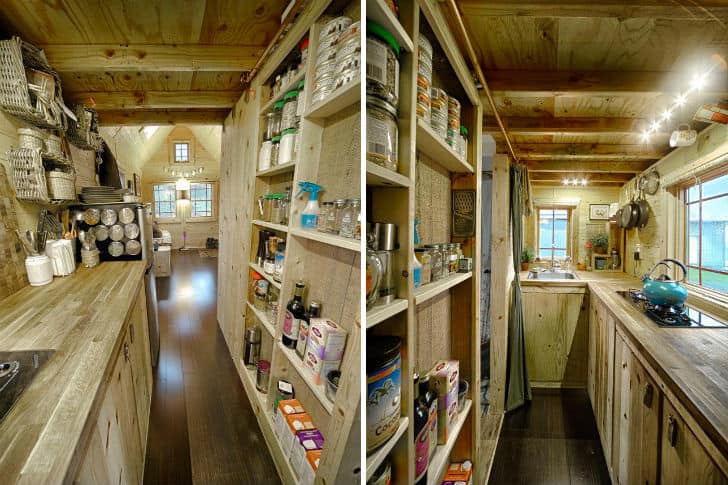
Even the kitchen countertops are covered in wood, with the only exception to the forested design theme coming in functional fixtures like the modern stove and sink. Narrow open-faced shelving accommodates the resident couple’s unrefrigerated food and supplies.
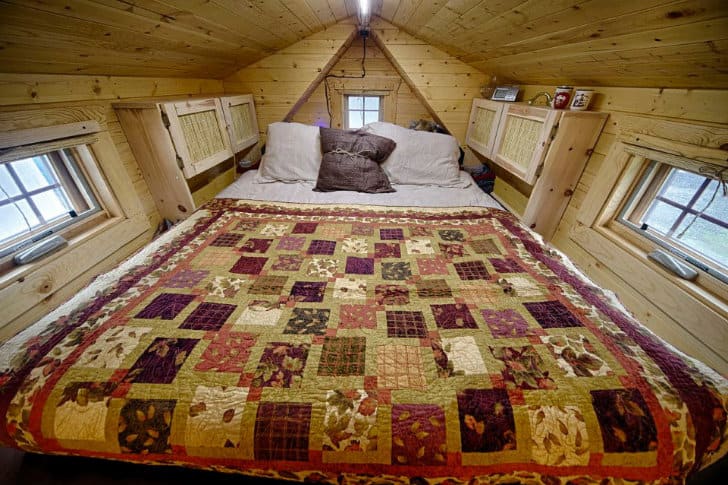
Like everywhere else, the bedroom area (which is actually a small sitting-height loft above the kitchen) contains extra storage space. A double bed takes up almost the entire width of the loft, accommodating the residents and a couple cabinets but not much more.
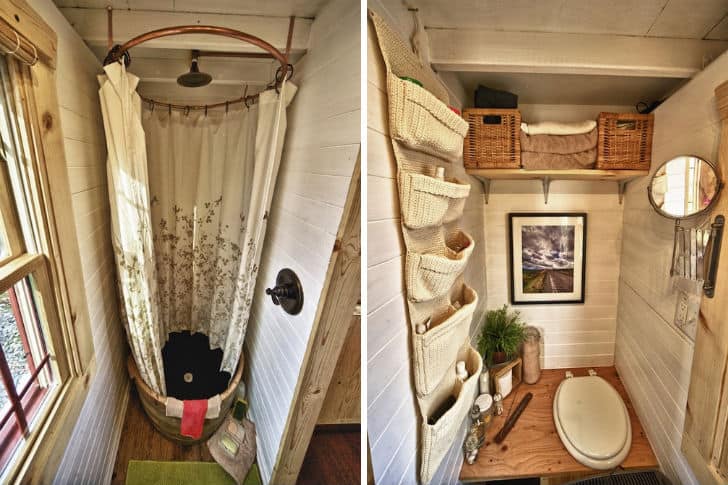
The small bathroom in the trailer, just off the kitchen, represents the most back-to-nature part of the rolling house in both decor and function, with water recycling and waste composting used to help sustain the house with minimal impact on the environment. The shower is made from a weathered wine barrel, with other practical pieces made as well from found objects.
